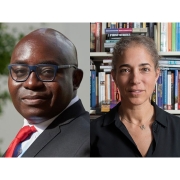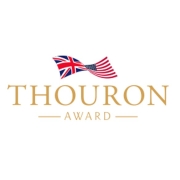Psychology Professors Show That When it Comes to Learning Words, Quality is More Important Than Quantity

A study coauthored by Psychology's Professor Emerita Lila Gleitman Professor John Trueswell shows that early vocabulary improvement is likely to have more to do with the “quality” of the interactions in which the words are used rather than the sheer quantity of speech directed at young children.
This is in contrast to earlier studies, which have suggested that the sheer quantity of verbal communication—how much parents say to their children when they are very young—influences their later vocabulary such that it strongly predicts a child’s level of success even into high school and college. Moreover, Trueswell and Gleitman have found that, unlike quantity, the quality of these interactions is not related to the parents’ socioeconomic status.
Published in the Proceedings of the National Academy of Sciences, the study tracked the long-term effects of contextualized speech (for example, pointing to an object when referring to it) to see if children who were exposed to this method more often did better on a vocabulary test three years later. The more an environment maximizes the ‘here and nowness’ of speech, Gleitman says, the more likely it is that an interaction will be highly informative—and the more frequently a child heard highly informative examples of speech, the better he or she did on the tests.
Critically, the rate at which a parent gave highly informative examples to their children wasn’t correlated to the amount they spoke to them in total. This is potentially hopeful news, given the studies that link low socioeconomic status, or SES, to low speech quantity and thus to poor scholastic performance.
There are a variety of reasons why low-SES parents are speaking less to their children, Trueswell says, but natural predispositions about talking about the ‘here and now’ don’t seem to be correlated to SES. Talking to children more just increases the likelihood that parents will provide informative examples while speaking.
Benjamin Armstrong III, then of the Department of Psychology at Penn, also contributed to the study. The research was supported through the National Institute of Child Health and Human Development.
Read the full story here.





